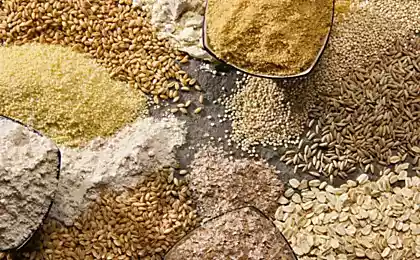190
Saffron is the best natural remedy for improving mood

Saffron, in particular its extracts, is considered a popular natural health product. It amazingly improves overall well-being. What is more useful exotic saffron? We offer a full list of useful properties of this spice.
Golden Spice: A Brief History of Saffron
Saffron is one of the most expensive and valuable spices in the world. Its history dates back thousands of years, and it is mentioned in ancient texts in both Asia and Europe. Saffron is derived from the stigmas of Crocus sativus flowers, and about 150,000 flowers are needed to produce one kilogram of this spice.
Rich composition is the key to health
The unique properties of saffron are due to its rich chemical composition. It contains:
- Crocine and crocetin: natural carotenoids, responsible for bright color and have antioxidant properties.
- Safranal: a compound that gives saffron a characteristic aroma and is considered useful for the nervous system.
- Picrocrocin: The substance responsible for the bitter taste of spice.
Saffron and mood: how spice affects the emotional state
Studies show that saffron can positively affect mood. Here are some aspects of its impact:
1. Natural antidepressant
Some studies suggest that saffron may help reduce symptoms of mild to moderate depression. It is believed that the active components of saffron affect the level of serotonin, a hormone responsible for feelings of happiness and satisfaction.
2. Reducing stress and anxiety levels
Saffron can help fight stress and anxiety, contributing to the overall relaxation of the body. Its soothing properties were valued in ancient times.
Other Benefits of Saffron
1. Antioxidant protection
Due to its high antioxidant content, saffron helps protect cells from free radical damage. This helps to slow down the aging process and reduce the risk of developing various diseases.
2. Improving vision
Some studies indicate that saffron may positively affect eye health by improving retinal function and slowing age-related vision changes.
3. Support for the cardiovascular system
Saffron can help reduce cholesterol and improve blood circulation, which has a positive effect on the heart.
4. Digestive benefits
Spice stimulates digestion, improves appetite and can help with stomach cramps.
How to Use Saffron in Daily Life
Saffron is widely used in cooking of different peoples of the world. Here are a few ways to apply it:
- Addition: rice, paella, risotto, soups and sauces acquire a unique taste and color with the addition of saffron.
- Tea and infusions: Saffron drinks have a calming effect and help to relax.
- Cosmetics: masks and creams with the addition of saffron improve the condition of the skin.
Precautions
Despite the many benefits, it is important to remember the following:
- Dosage: Saffron is a very concentrated spice. It is recommended to use no more than 1.5 grams per day.
- Pregnancy: High doses of saffron may be undesirable for pregnant women. Before use, you should consult a doctor.
- Allergies: Some people may have an individual intolerance to saffron.
Conclusion
Saffron is not just a spice, but a real gift of nature that can improve mood and general well-being. Its rich composition and many useful properties make it a valuable addition to the diet. However, it is important to remember about the correct use and possible contraindications.
“Saffron is the golden thread that connects us to ancient traditions and modern health knowledge.”
Sources
To prepare the material, research data and recommendations of specialists in the field of nutrition and health were used.























